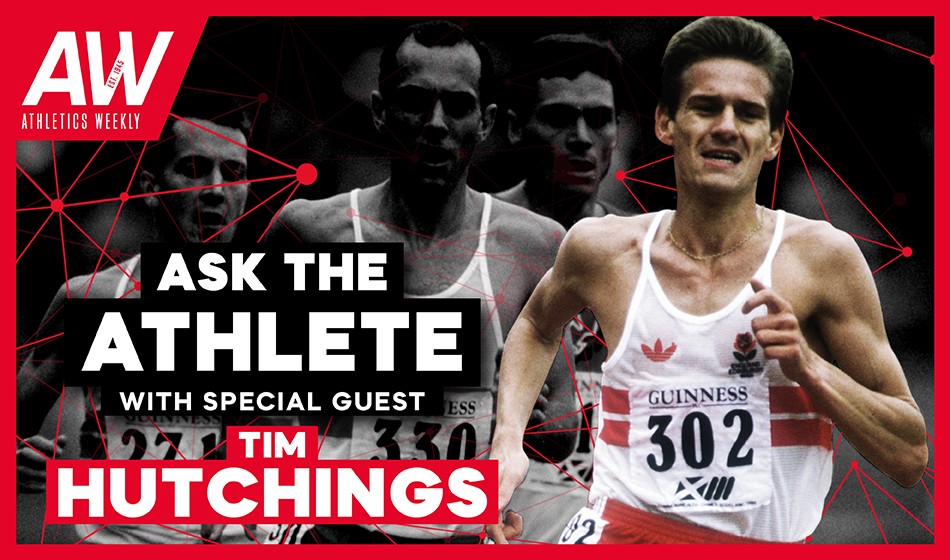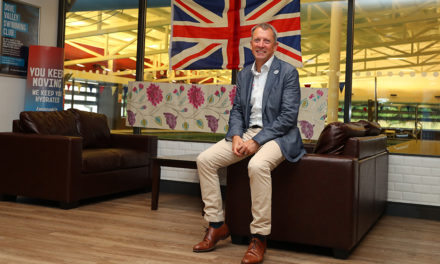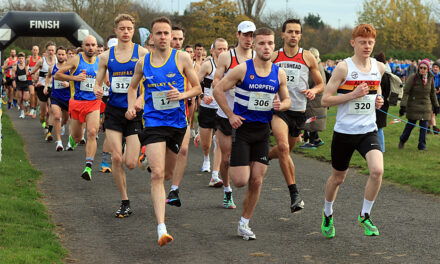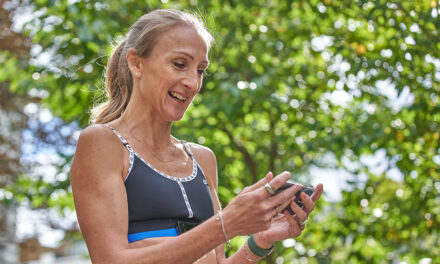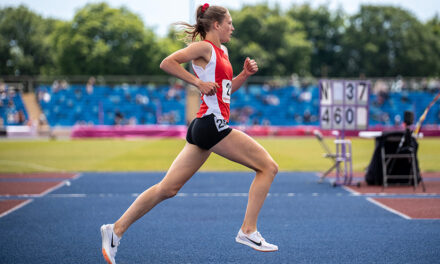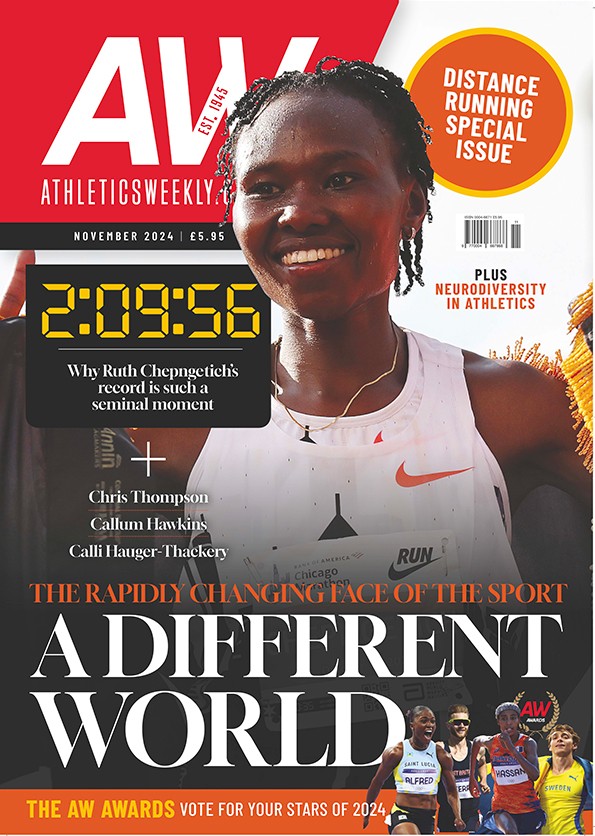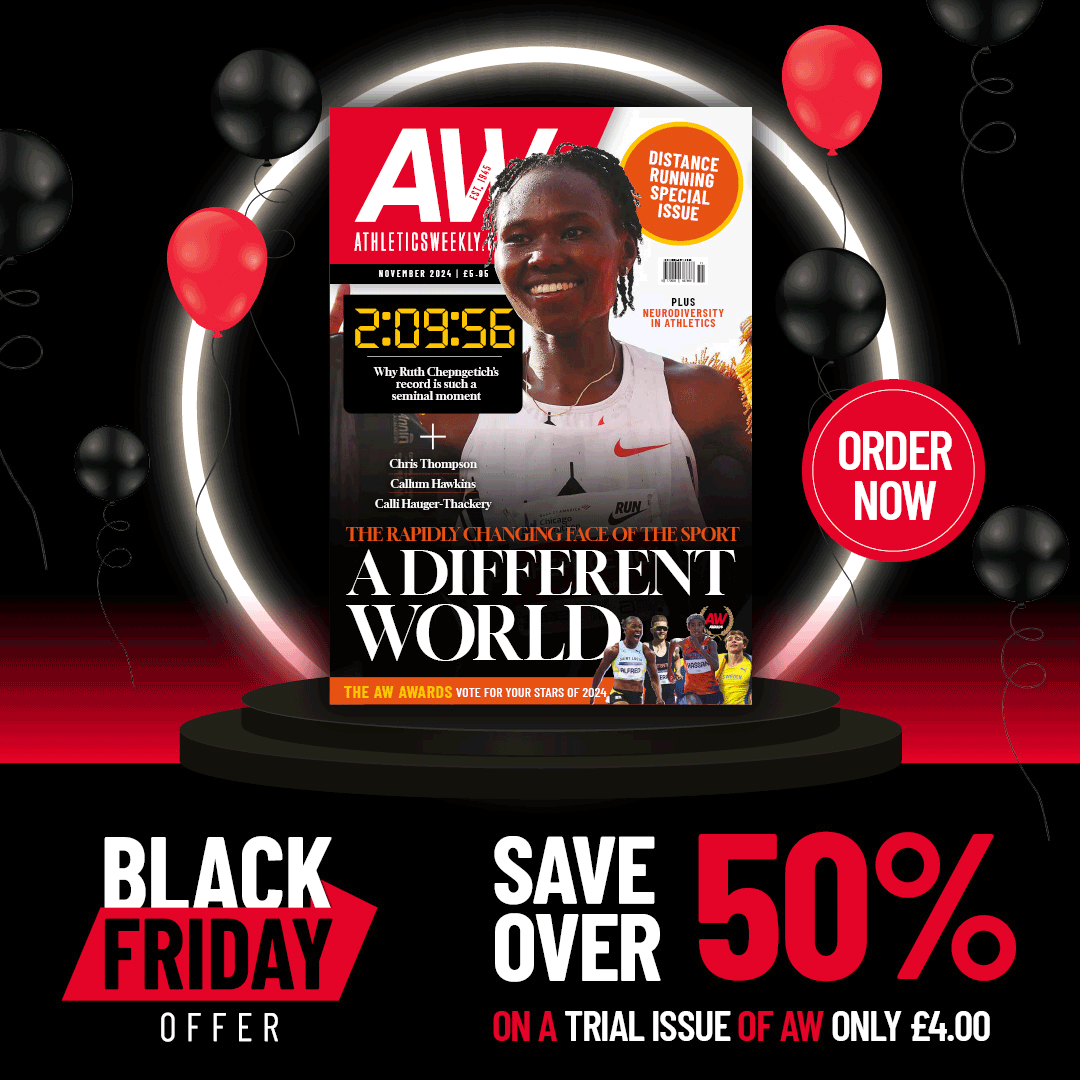The European, Commonwealth and World Cross medallist answers your questions on new spikes and shoes, cross country in the 1980s to now and the impacts of sleeping in the day and altitude training for athletes
Glimpse into the lives of world-class athletes as they answer questions from YOU each week on ‘Ask the Athlete’.
This week AW is joined by Tim Hutchings – European, Commonwealth and World Cross medallist, founder of the Brighton Marathon and commentator.
He chats to AW about commentating on Haile Gebrselassie, the debate about carbon shoes and Eliud Kipchoge’s sub-two-hour marathon, how cross country has moved forward from the 1980s and so much more!
Have a read of some of Hutchings’ answers below and then enjoy the full 22-minute episode.
Who’s the toughest opponent you’ve faced and why?
“Well, my career was about from 1978 to 1990. Like I say, I lost a lot so I met plenty of tough opponents! Probably Carlos Lopes. He was an absolute beast, he was so strong, his speed endurance was incredible, he beat me in the world cross country in 1984 in New Jersey and it was a very flat horserace course. Then he beat Charlie Spedding of course to take Olympic gold in Los Angeles.
“I remember having a beer with Charlie on the Sunday after the marathon (in LA) which I think was on the Sunday – I think my 5000m final was on the Saturday – and Charlie said to me, “There was one point that we were coming towards the stadium with about a mile to go, the three of us were running side by side, John Treacy, him and me, and by the time we all looked at each other he [Lopes] had gone up the road. That’s pretty much what he did in the cross country. With about a mile to go, we were bombing around, I think four of us had got away and Lopes just changed gear and went for it and that change of pace was incredible.
“John Ngugi was an animal, a different animal. I was leading in the world cross country and he came past me on a dreadfully muddy course when I was leading comfortably and then disappeared into the sunset and won by about half a minute.”
What is your favourite commentary moment?
“I’ve been so bloody lucky to commentate on so many races over the years, where it’s 100m, 400m or steeplechase. Commentating on world records is an enormous privilege of course. I’d have to come back to the Olympic 10,000m final at Sydney 2000 where Paul Tergat and Haile Gebrselassie were knocking chunks out of each other down the home straight. It is the most astonishing battle with two guys who just refused to lose and I think Haile won by a couple of inches. You wanted to sit back and enjoy it but I had to yell into the microphone but sounding coherent wasn’t always easy when you were enjoying it so much!”
The two-hour mark in the marathon was passed last year – something we once thought impossible. What’s the next big landmark?
“Well, I’d like to take issue with this question because the two-hour mark in the marathon was patently not passed last year. Basically, the race in Vienna was set-up such that the organisers basically cherry picked the rules that they wanted to adhere to and then threw out the ones they thought were inconvenient. Then Eliud [Kipchoge], who I have enormous respect for, but the shoes he wore at that time were illegal and went on the market for other runners to buy. He could’ve gone a lot quicker than he did.
“Two hours therefore has not been broken for the marathon but the two-hour barrier has been broken by a runner over the marathon distance. Other than that, we shouldn’t dignify it by calling it a marathon and that’s a fact, it’s not even debatable.
“What’s the next big landmark? Great question. We’ve seen the hour mark go a few years ago for the half marathon. I suppose with these spikes doing what they’re doing, 26:00 for 10,000m, 12:30 for 5000m, and I think while these spikes remain legal and it looks like they’re going to, much against what I think would be best for the sport, I think those marks will go. We’re in a new era and there’s no debating it. Some people dispute it and I can’t figure out why. Some are actually rude about this position I actually take on it but I’m just interested in preserving the heritage of the sport.”
Cross country is probably the one area unaffected by shoe tech. As arguably Britain’s best cross country runner ever, where do you think you would finish in a race now? Still a medallist or have the standards moved on since the 1980s?
“They’ve moved on dramatically. I think maybe I’d finish in the top 15 now in the shape I was in where I finished second a couple of times. It’s s different world. The second time in 1989 there was a Kenyan in first place and in third place and I was second. Actually, there was not the hoard of East Africans running in the cross country compared to now.
“There are probably, almost literally, 50 times as many top African runners compared to 30-40 years ago. We live in a different age and I was lucky to be one of a bunch of guys from USA, Western Europe who could go and earn a good living on the cross country circuit, run 5000m on the continent. Nowadays guys running at the standard I was struggle to get into races let alone make a really good living. I really sympathise with the current generation of top European and non-African 5000m and 10,000m runners because it’s a totally different ballgame.”
Many athletes now train in Kenya – you did it in the 1980s – what did you learn about yourself and about athletics training in that period?
“Yeah it’s funny isn’t it because nowadays camps go to Kenya, South Africa or Ethiopia and it’s all funded. Back then me and the wife in the late 80s would clamber into our Golf GTI in South London, get the boat, drive down to St Moritz, spend a month there, drive back and I was in great shape. There was no lottery funding. The advantage of going to altitude, whether it’s St Moritz or Kenya, is that you’re isolated, getting away from stuff you’ll be caught up in at home and I think you have a lot more focus. Psychologically, subconsciously and indeed consciously you benefit enormously from that.
“I did love Kenya. Back then there was nothing organised. I went with Adrian Passey, Chris Sweeney, and one or two other guys. It wasn’t the Wild West but you were very much on your own. We stayed in Nairobi where there was access to a tartan track and there was access to physios if you got injured. Whereas Eldoret didn’t have an airport, a university or track facilities and it certainly wasn’t a big town. It was a different world altogether. I wish I had gone to altitude earlier on in my career and it was a very unknown perception back in those days.”
Subscribe to Athletics Weekly on YouTube to ensure you never miss an episode.
» For more on the latest athletics news, athletics events coverage and athletics updates, check out the AW homepage and our social media channels on Twitter, Facebook and Instagram

